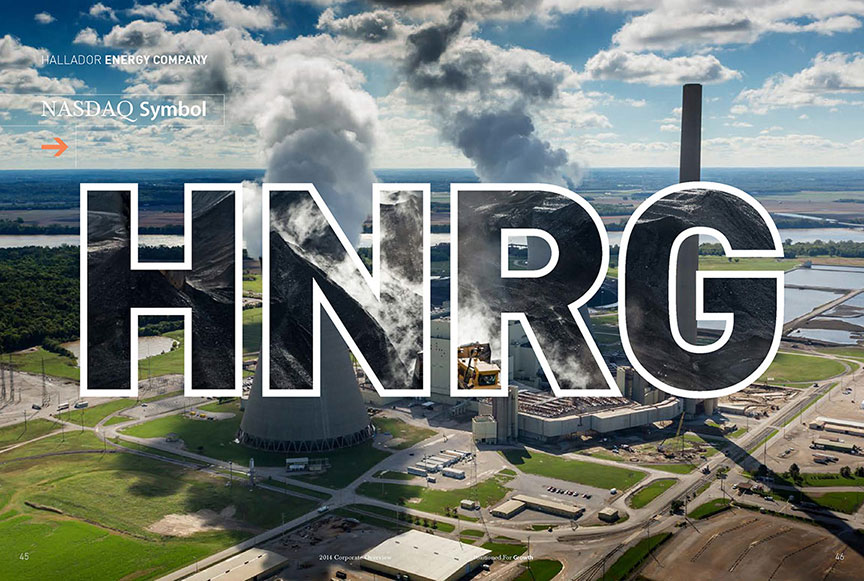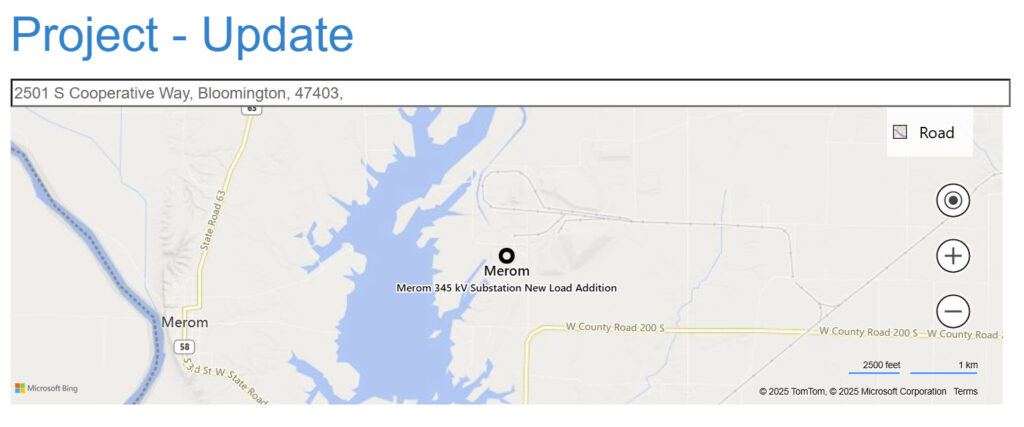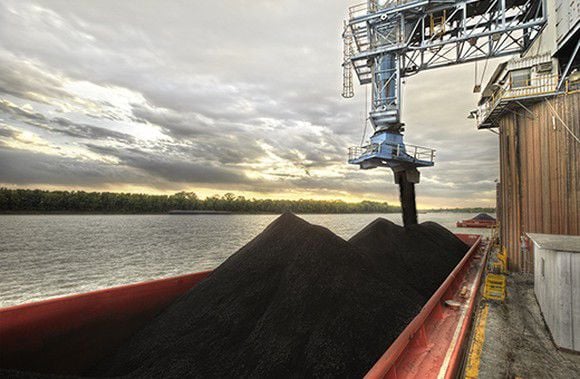State regulators this month approved a $1.1 million annual “low-carbon” surcharge for Black Hills Energy’s Wyoming customers — an overall 0.67% increase that will be added to monthly bills beginning in February.
That’s just the beginning of what could add up to $1 billion in additional costs for the company’s 145,000 customers in the state, and more than $2 billion for Rocky Mountain Power’s Wyoming customers, according to preliminary filings with the state, if the utilities move forward on a state-imposed mandate to retrofit coal-fired power plants with mechanisms to scrub carbon dioxide from smokestacks.
Wyoming lawmakers, who frequently warn against the hidden costs of abandoning coal-based power in favor of renewable energy, passed the controversial House Bill 200 – Reliable and dispatchable low-carbon energy standards law in 2020. The mandate is intended to compel utilities to retrofit coal plants with carbon capture technologies rather than retire the facilities. Proponents say it’s an effort to maintain electric reliability and to keep Wyoming coal plants viable amid increasingly ambitious climate policies in other states.
But the law presents several questions of fairness and practicality, according to critics including the Wyoming Office of Consumer Advocate. The primary concern is cost.
The commission-approved rate hikes thus far only cover the cost of analyzing the viability of installing carbon capture systems. Actual deployment would cost much more.
According to a preliminary report filed by Black Hills Energy in March 2023, applying the technology could cost more than $500 million at the Wygen II coal plant and about $475 million at the Neil Simpson II plant — both located at the Wyodak complex outside Gillette. Both price tags far exceed the original costs of the plants, according to filings with the Wyoming Public Service Commission. Neither estimate accounts for the cost of replacement power; adding carbon capture would reduce total power generation output at the plants by 15% to 36%, according to the company’s 2023 analysis.

In addition to Black Hills Energy’s Wygen II and Neil Simpson II, Rocky Mountain Power operates three coal-burning units in the state that are subject to the law: one at the Dave Johnston plant near Glenrock and two at the Jim Bridger plant east of Rock Springs. The utility began charging its 144,000 Wyoming customers a 0.3% carbon capture compliance surcharge last year to collect an estimated $2 million annually.
In addition to the giant price tags, critics point to costly budget overruns and operational challenges associated with past efforts at retrofitting existing coal plants with carbon capture technology.
“We’re being asked to pay for unproven research and development-type of projects that, at least at this time, do not show a viable path toward being implemented,” Office of Consumer Advocate Administrator Anthony Ornelas said.
Moving targets
The coal power plant carbon-capture surcharges that Black Hills Energy and Rocky Mountain Power are charging their Wyoming ratepayers — $1.1 million and $2 million, respectively — represent ongoing costs of complying with Wyoming law by hiring engineers and consultants to measure the viability of adding carbon capture to the utilities’ five coal-burning units.
House Bill 200 does allow the utilities to apply for an exemption, which could be granted if they prove to the Public Service Commission that adding the technology would be too expensive or result in less reliable power availability.
The first opportunity for such a request or determination could come soon after the utilities file annual progress and updated cost estimate reports in March. However, lawmakers may consider a draft bill this session that would revise some targets.
Senate File 42 – Low-carbon reliable energy standards-amendments would push back the deadline to install coal plant carbon-capture retrofits from 2030 to 2038, and change the minimum standard of capturing 90% of the greenhouse gas that would otherwise be emitted into the atmosphere to 75%. The bill would also exempt regulated utilities with fewer than 10,000 customers.
While those revised targets may give emerging technologies the time needed to become commercially viable, continued engineering studies will only become more expensive, the Office of Consumer Advocate has noted, even if the companies and the state ultimately decide not to retrofit the power plants.
Black Hills Energy has estimated that the second phase of engineering analysis could cost between $8 million and $12 million, according to filings with the state. That would result in a higher carbon capture surcharge. The same rising costs of engineering studies to comply with the law apply to Rocky Mountain Power and its customers.
Ornelas, the Office of Consumer Advocate administrator, is doubtful that the engineering studies — pending legislation notwithstanding — should move on to the next, more expensive stages. However, his office is reserving judgment until after the utilities file their new estimates in March, he told WyoFile.
Who benefits, who pays?
The recent Black Hills Energy request to impose a carbon capture compliance surcharge, which was challenged by the Office of Consumer Advocate and some of the utility’s largest electric consumers, revealed many more questions of fairness and affordability regarding the 2020 mandate.
Black Hills Energy is the parent company of two separate, regulated electric utilities in Wyoming: Black Hills Power, which serves about 2,600 customers in the Newcastle region, and Cheyenne Light, Fuel and Power, which serves about 44,000 customers in the southeast corner of the state.
A handful of Cheyenne Light, Fuel and Power’s largest customers vigorously argued over who should share the financial burden of engineering studies to comply with the carbon capture mandate.
Microsoft, which operates a growing data center complex in Cheyenne, said it shouldn’t be forced to pay because it doesn’t rely on either of Black Hills Energy’s coal-fired power plants. Instead, Microsoft has an arrangement with Cheyenne Light, Fuel and Power to rely only on power market purchases — most of which come from renewable energy resources, in line with the company’s own initiatives. None of the data center’s power comes from the coal units in question, the company argues, so Microsoft shouldn’t have to pay for their retrofits.

The 3-member Public Service Commission, however, ruled last week that the costs and potential benefits of the state’s carbon capture mandate apply to all utility customers, regardless of such power supply arrangements.
“My view is that the Legislature stated a policy of favoring coal-fired generation,” Public Service Commission Chair Mary Throne stated in the commission’s hearing regarding Black Hills Energy’s surcharge request last week, “that it’s a good that [power from coal] should be encouraged in Wyoming, and that therefore all customers of a utility should pay.
“It doesn’t exclude any customers,” Throne continued, and added that the time to make such arguments is when lawmakers consider such laws. “All the participants in this proceeding certainly had the opportunity to make that argument to the Legislature.”
That interpretation of HB 200, Ornelas said, could discourage climate-conscience companies like Microsoft from coming to Wyoming.
“This could have the effect of really discouraging future investments in and around Cheyenne and other parts of Wyoming. These are large industrial customers, often data centers. These customers do not rely, in any way, shape or form on Wyoming coal-fired generation to meet their energy needs.”
‘Vigorous pursuit of grant funding’
The initial cost estimates — ranging from $500 million to $1 billion to retrofit a single coal-burning unit — are driving the push to possibly amend the 2020 HB 200 law in the upcoming budget session in February.
Proponents of the existing mandate, including Gov. Mark Gordon, hope that the recently expanded federal “45-Q” tax credit program for carbon capture facilities, along with technological developments, will bring down the cost of retrofitting existing coal plants to emit less carbon dioxide.
Still, the Public Service Commission, which is charged with implementing the mandate, has expressed concerns that the state law is pushing it beyond traditional rate-making principles of “just and reasonable” costs that are prudent to pass on to ratepayers.
All three commissioners — Throne, Chris Petrie and Mike Robinson — have said they hope Black Hills Energy and Rocky Mountain Power can find financial support for such carbon capture analysis from sources other than their ratepayers.
“I’d like for the companies to proceed from here with the clear understanding that the vigorous pursuit of grant funding, or other non-ratepayer funding, should be given a very high priority in this process,” Commission Deputy Chairman Petrie said.








